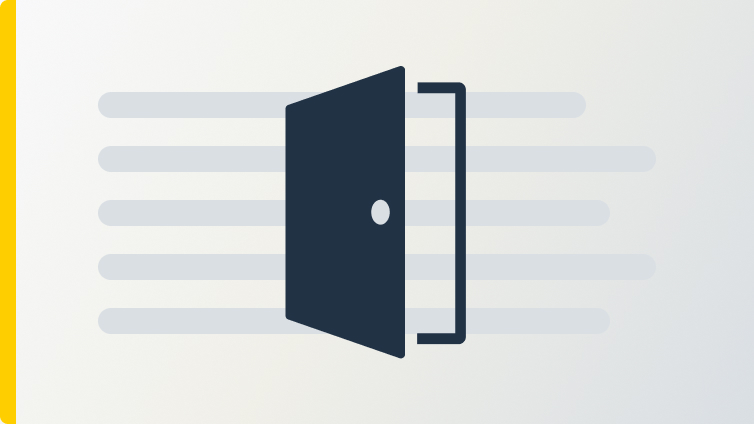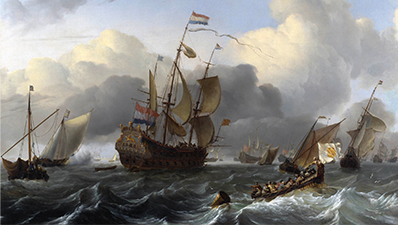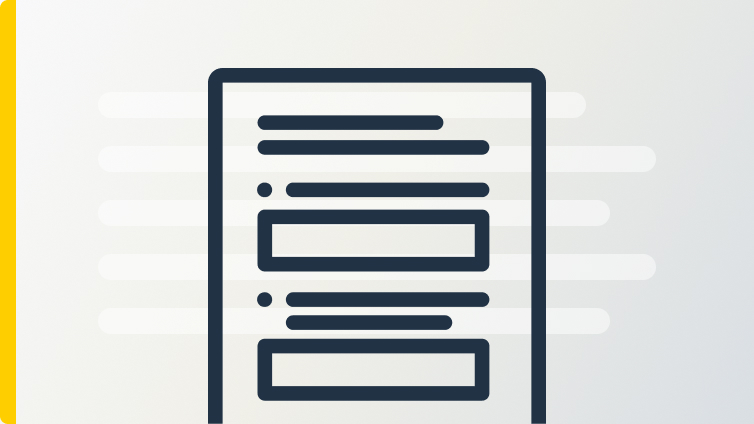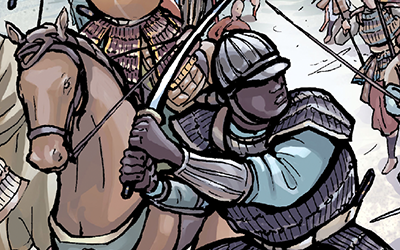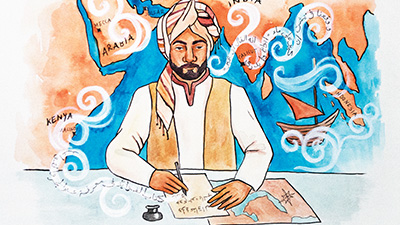Exploration: Causes and Events from 1450 to 1750 CE
Teacher Resources
Driving Question: What role did governments and economic systems play in enabling maritime exploration c. 1450 to 1750?
Europeans set sail in the fifteenth century using knowledge and technology accumulated over centuries and from all over Afro-Eurasia. Despite differing motivations for exploration, each mariner participating in this transoceanic adventure required substantial support and resources in order to be successful.
Learning Objectives
- Describe the role of states in the expansion of maritime exploration from 1450 to 1750.
- Explain the economic causes and effects of maritime exploration by the various European states.
- Use the historical reasoning process of continuity and change over time to evaluate how innovations in technology impacted exploration and trade from c. 1450 to 1750 CE.
- Use graphic biographies as microhistories to support, extend, or challenge the overarching narratives from these transoceanic regions.
Vocab Terms:
- indigenous
- joint-stock company
- navigation
- plantation
Opener: Exploration: Causes and Events
To teach this lesson step, refer to page 3 of the Lesson 4.2 Teaching Guide.
Curious about how other teachers approach the AP Themes? Read AP Themes Introduction in the Community Forum.
Create a web of words, using what you know about maritime exploration.
Origins of Oceanic Connections
To teach this lesson step, refer to page 3 of the Lesson 4.2 Teaching Guide.
New technology often leads to greater exploration. This is most certainly the case in the period covering circa 1450-1750, when mariners used technology and pre-existing knowledge of trade routes to enrich their home countries.
-
Guiding Questions
-
Before you read
Preview the questions below, and then skim the article. Be sure to look at the section headings and any images.
While you read
Look for answers to these questions:
- What does the author say was the biggest motivation behind the Europeans’ voyages of exploration?
- Why were the small islands off the coast of West Africa important to European expansion?
- The author argues that the European voyages were based on ideas and technology gained through trade. What are some examples?
- These voyages were dangerous. Why did explorers, merchants, and rulers accept the risks?
- What advantages did joint stock companies provide?
After you read
Respond to the following questions:
- Using evidence from the article, describe the extent to which this text explains how cross-cultural interactions resulted in the diffusion of technology and facilitated changes in patterns of trade and travel from 1450 to 1750.
- Economic systems both shaped and were shaped by European voyages of exploration. Can you think of one economic cause that led to these voyages? Additionally, what is one effect these voyages had on economic systems?
Visualizing Oceanic Empires
How did European maritime exploration positively and negatively impact the world? Use a combination of sourcing and drawing to decide.
Closer: Graphic Biography: Yasuke
To teach this lesson step, refer to page 4 of the Lesson 4.2 Teaching Guide.
Looking for ways to help students navigate graphic biographies? Take a few minutes to watch how to Decode a Graphic Biography.
In 1579, an African man arrived in the city of Kyoto, Japan. We know very little about him. He appears in the historical record for less than four years. But in that short time, he became the first foreign-born samurai, befriended the most powerful man in Japan, and fought in the struggle to unify the country.
-
Guiding Questions
-
Before you read
Preview the questions below, and then skim the comic, paying attention to things like prominent colors, shapes, and types of text and fonts. How do you know where to start and in which direction to read? What’s in the gutters (the space between panels)? Who or what is the focus of the comic?
While you read
Look for answers to these questions:
- Where was Yasuke likely from and how did he get to Japan?
- What was Yasuke’s relationship with Oda Nobunaga?
- What happened to Yasuke after Oda Nobunaga was killed?
- What else do we know about Yasuke?
- How does the artist’s depiction of Yasuke change across the page?
After you read
Respond to the following questions:
- Using evidence from this graphic biography, explain how maritime exploration affected social interactions and organization.
- How does Yasuke’s story support, extend, or challenge what you have learned about transoceanic connections in this period?
The Lion of the Sea: Ahmad Ibn Mājid
To teach this lesson step, refer to page 5 of the Lesson 4.2 Teaching Guide.
Prior knowledge and study come in handy, especially when traveling across unfamiliar territory. Ahmad Ibn Mājid knew this, and his legendary skills and knowledge influenced many explorers who followed.
-
Guiding Questions
-
Before you read
Preview the questions below, and then skim the article. Be sure to look at the section headings and any images.
While you read
Look for answers to these questions:
- What subjects did Ahmad Ibn Mājid have to study in order to become an Indian Ocean sailor?
- Why was it important to learn about geography and astronomy if you were a sailor or merchant?
- What types of navigational tools did sailors like Ibn Mājid use in the fifteenth century and where did these tools originate?
- Why was knowledge of languages, culture, and Islam important if you were an Indian Ocean sailor?
- What topics did Ibn Mājid’s most famous book, Kitāb al-fawāʾid fī ușūl wa-l-qawāʿid, cover?
After you read
Respond to the following question:
- What evidence does the author give for her claim that the famous Portuguese explorer Vasco da Gama wouldn’t have reached his destination without the knowledge of Indian Ocean sailors and merchants? Do you agree with her? Explain your reasoning.


